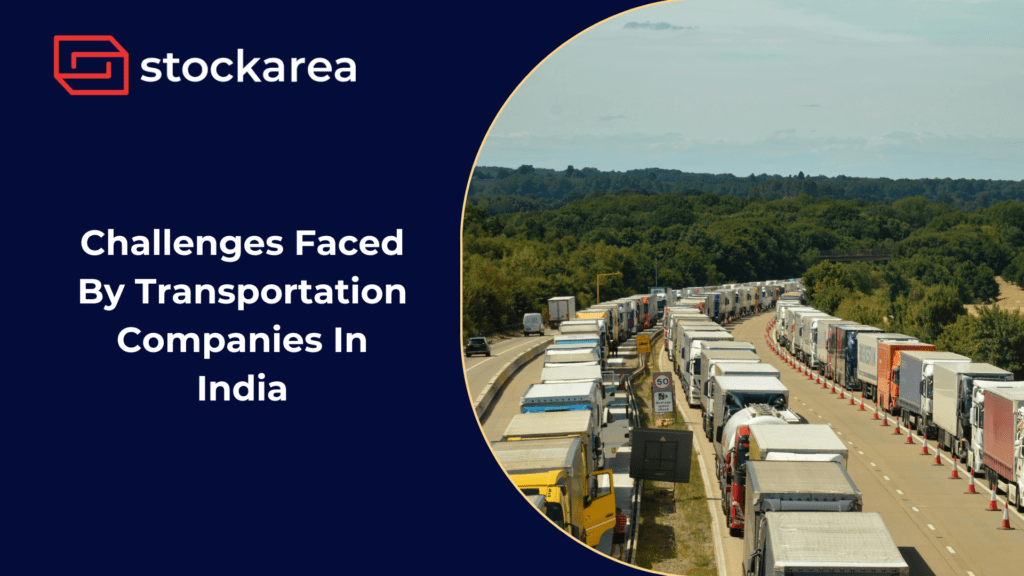The logistics sector in India stands as the backbone of numerous industries, facilitating seamless supply chain operations across India. Transportation companies are pivotal participants in this domain, entrusted with the critical duty of facilitating connections between organizations and their clientele. Nevertheless, within the ever-evolving realm of Indian trade, these organizations confront a variety of complex obstacles that hinder both operational effectiveness and financial viability.
Let us explore the most common challenges faced by transportation companies in India.
1. Balancing Bulk Orders
Transport companies encounter a substantial obstacle in effectively managing the timelines for bulk orders. Organizations operating in the logistics industry of India face the formidable challenge of maintaining supply chain timeliness, especially when faced with significant quantities of ordered items. Difficulties frequently arise when attempting to effectively prioritize and coordinate deliveries within constrained periods due to the surge in orders. This difficulty is additionally exacerbated by resource limitations, which are in turn intensified by demanding payment schedules. Significant delays in delivery schedules are frequently observed during festive periods, which brings attention to systemic deficiencies in mechanisms that determine the estimated time of arrival.
2. Transportation Roadblocks
Notwithstanding careful preparations for packaging and punctual deliveries, the imminent concern of shoddy shipping remains significant. The transportation sector faces significant challenges due to the varied landscapes and climates of India. Poor road conditions are common in interior regions, whereas landslides and accidents are more prevalent in mountainous areas such as the Ghats. The inefficiency of road transportation is further compounded by the presence of inadequate road infrastructure, frequent checkpoints, and traffic congestion.
3. Surge In Fuel Expenses
A major hurdle for transportation companies in the Indian logistics sector is the soaring cost of fuel. Inflation in fuel prices directly translates to higher transportation costs for shippers. The continuous surge in fuel prices also leads to escalating surcharges on freight rates, further burdening the industry. Consequently, truckers’ earnings and revenue take a hit as fuel prices climb, presenting a significant challenge for the entire sector.
4. Lack Of Skilled Personnel
The transportation sector encounters considerable obstacles that arise from insufficient training and expertise within its labor force. The absence of requisite expertise can hinder the daily operations of drivers, shipment managers, and business executives, resulting in inefficiencies, safety risks, and regulatory compliance concerns. Substantial investment in comprehensive training programs and initiatives aimed at enhancing the skills and capabilities of personnel is necessary to effectively tackle these concerns. To ensure that personnel are adequately prepared to confront the challenges of the transportation sector, it is further imperative to establish and enforce quality standards and requirements.
5. Technological Transformations
Numerous transport companies in India persist in employing antiquated systems and manual procedures, notwithstanding the progress made in technology. Potential cost reductions and increased efficiency can result from the adoption of innovative technologies such as GPS tracking, route optimization software, and digital documentation systems. Transitioning to these systems, nevertheless, necessitates significant financial investment and employee education. The utilization of GPS tracking permits the instantaneous monitoring of vehicle whereabouts, whereas route optimization software enhances delivery routes to facilitate fuel savings and customer contentment. By streamlining administrative processes, digital documentation systems improve precision and information exchange.
6. Unexpected Transportation Delays
Constant unpredictability resulting from the country’s varied topography, inclement weather, and travel conditions poses enduring obstacles for the Indian transportation sector. Delays continue to be prevalent despite careful preparation for packaging and punctual deliveries. The immense expanse of India comprises a variety of climates and topographies, each of which presents its own unique set of challenges. This results in substantial financial and time losses for transportation companies. While additional delays are frequently expected, the potential for additional unanticipated delays cannot be completely ruled out.
Conclusion
To surmount the obstacles about transportation in India, a comprehensive strategy is imperative. Infrastructure development investments can enhance road conditions and safety, particularly in mountainous and remote regions. Furthermore, the regulation of labor shortages can be effectively mitigated, and adherence to policies ensured by nurturing a proficient workforce via comprehensive training initiatives. To address systemic challenges such as petroleum price volatility and bureaucratic obstacles, collaboration between policymakers and industry stakeholders is vital. Transportation companies can effectively navigate the intricacies of the Indian logistics landscape through the adoption of innovative practices, allocation of resources towards infrastructure development, and prioritization of workforce growth.
Related posts
- 10 Must-Have Transport Management System Features
- Top 12 Transport Management Softwares For Logistics Companies
- What Is Transportation Management System?
- 10 Key Benefits Of Transportation Management System (TMS)
- Logistics Market In India
- 10 Best Cost Reduction Strategies In Logistics Procurement
- 15 Best Courier Services Companies In India
- 7 Key Benefits Of LTL Shipping For Your Business
- 7 Steps To Choosing The Right Courier Partner
- Advantages & Disadvantages Of Road Transport
- 6 Steps To Start A Successful Trucking Business
- 5 Key Benefits Of Hiring Trucking Company For Logistics
- Top 11 Trucking Industry Trends In 2024
